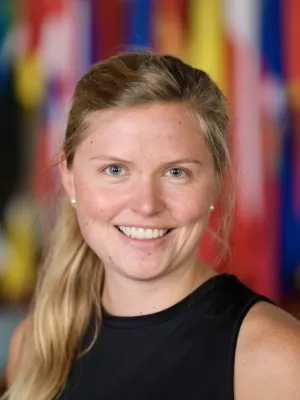
Lisa Heldt
Doctoral student

Multi-actor business models in the manufacturing industry. Exploring how first-tier suppliers transition towards circularity.
Author
Editor
- Laura Michelini
- Anna Minà
- P Alaimo Di Loro
Summary, in English
Department/s
- The International Institute for Industrial Environmental Economics
Publishing year
2022
Language
English
Pages
221-225
Publication/Series
Proceedings of the 7th International Conference on New Business Models: Sustainable Business Model Challenges: Economic Recovery and Digital Transformation
Full text
Document type
Conference paper
Publisher
LUMSA University
Topic
- Business Administration
- Environmental Sciences
Keywords
- Business model
- First-tier supplier
- Collaboration
- Value chain
- Circularity
Conference name
7th International Conference on New Business Models
Conference date
2022-06-23 - 2022-06-24
Conference place
Rome, Italy
Status
Published
Project
- Resource-Efficient and Effective Solutions based on Circular Economy Thinking - Phase 2
ISBN/ISSN/Other
- ISBN: 979-12-210-1188-3

